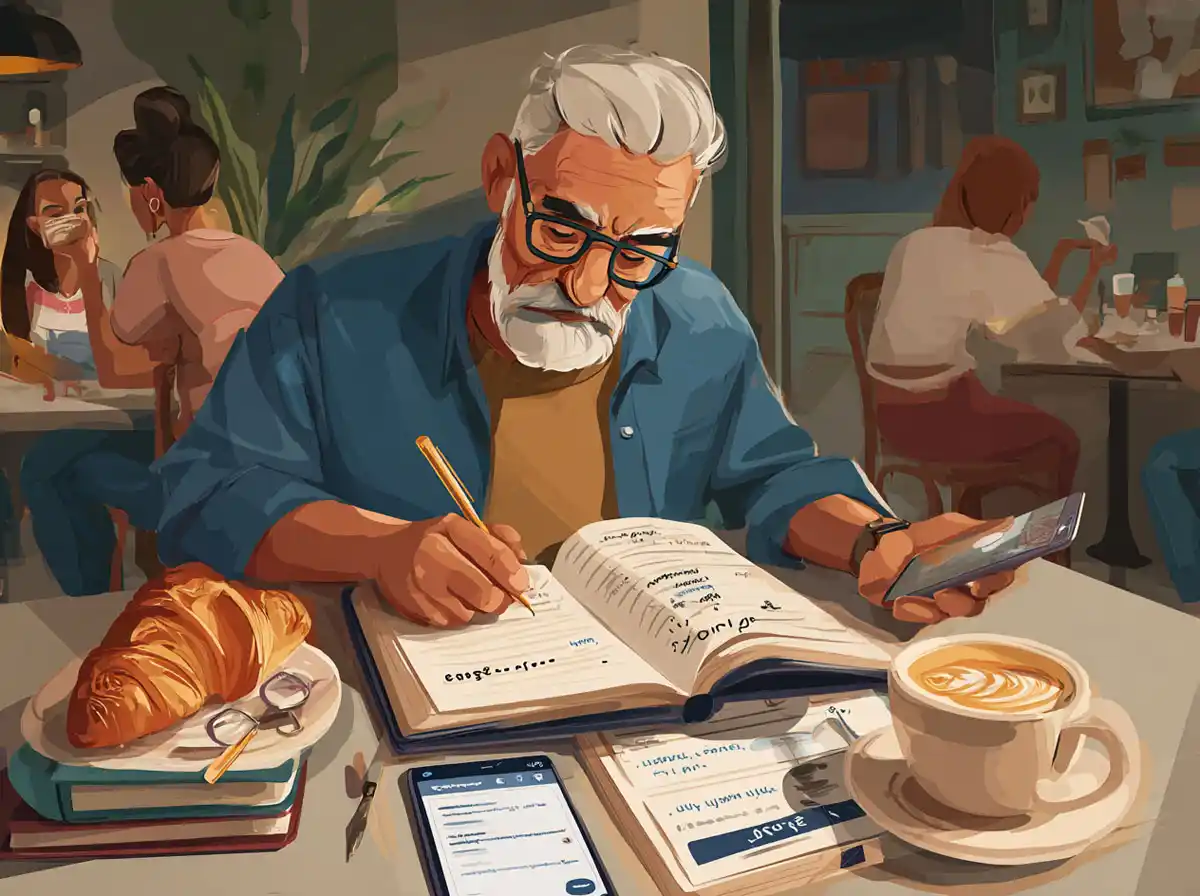Understanding Politeness in the Bulgarian Language
Politeness in Bulgarian communication is deeply rooted in social norms and cultural values. The use of polite phrases varies depending on the relationship between speakers, the setting, and the level of formality required. Understanding these nuances is crucial for effective communication.
The Role of Formal and Informal Speech
Bulgarian distinguishes between formal and informal forms of address primarily through pronouns and verb conjugations:
– Formal “you”: *Вие* (Vie) is used in respectful or professional contexts, such as speaking to strangers, elders, or superiors.
– Informal “you”: *ти* (ti) is reserved for friends, family, or peers.
Using the correct form is essential when employing polite phrases, as it conveys respect and appropriateness.
Non-Verbal Politeness Cues
Aside from verbal expressions, Bulgarians often use non-verbal cues such as a slight nod, maintaining eye contact, or a gentle smile to accompany polite phrases, enhancing sincerity and warmth.
Essential Polite Phrases in Bulgarian
Mastering key polite phrases can help you navigate various social situations smoothly. Below are categories of common expressions with their Bulgarian equivalents and pronunciation guides.
Greetings and Farewells
Polite greetings set a positive tone for any interaction.
– Hello / Good day – *Здравейте* (Zdraveyte) [formal]
– Hi – *Здрасти* (Zdrasti) [informal]
– Good morning – *Добро утро* (Dobro utro)
– Good evening – *Добър вечер* (Dobŭr vecher)
– Goodbye – *Довиждане* (Dovizhdane) [formal]
– Bye – *Чао* (Chao) [informal]
Expressions of Thanks and Apologies
Showing gratitude and apologizing are vital for maintaining respect.
– Thank you – *Благодаря* (Blagodarya)
– Thank you very much – *Много благодаря* (Mnogo blagodarya)
– You’re welcome – *Няма защо* (Nyama zashto)
– Excuse me / Sorry – *Извинете* (Izvinete) [formal]
– Sorry – *Съжалявам* (Sŭzhalyavam) [informal]
Making Requests Politely
Using polite request phrases can make your communication more effective.
– Please – *Моля* (Molya)
– Could you please… – *Може ли да…* (Mozhe li da…)
– Would you be so kind… – *Бихте ли бил(а) така добър(а)…* (Bikhte li bil(a) taka dobar(a)…)
Polite Responses and Compliments
Responding politely and giving compliments appropriately reflect good manners.
– Yes, of course – *Да, разбира се* (Da, razbira se)
– No, thank you – *Не, благодаря* (Ne, blagodarya)
– That’s very kind of you – *Много мило от ваша страна* (Mnogo milo ot vasha strana)
– I appreciate it – *Оценявам го* (Otsenyavam go)
Contextual Usage of Polite Phrases
Understanding when and how to use these phrases is just as important as knowing their meanings.
Formal Situations
In business meetings, official correspondence, or interactions with strangers, always use formal pronouns and polite expressions. For example:
– *Извинете, може ли да Ви попитам…* (Izvinete, mozhe li da Vi popitam…) – “Excuse me, may I ask you…”
– *Благодаря Ви за отделеното време* (Blagodarya Vi za otdelenoto vreme) – “Thank you for your time.”
Informal Situations
With friends or family, informal phrases are appropriate and create a relaxed atmosphere.
– *Здрасти! Как си?* (Zdrasti! Kak si?) – “Hi! How are you?”
– *Моля, вземи си парче торта* (Molya, vzemi si parche torta) – “Please, have a piece of cake.”
Polite Small Talk
Engaging in polite small talk can help build rapport.
– *Как мина денят ти?* (Kak mina denyat ti?) – “How was your day?”
– *Надявам се да се видим отново скоро* (Nadyavam se da se vidim otnovo skoro) – “I hope to see you again soon.”
Tips for Learning and Practicing Polite Bulgarian Phrases
To effectively incorporate polite phrases into your Bulgarian vocabulary, consider the following strategies:
- Use Language Learning Apps: Platforms like Talkpal provide interactive lessons and real-time practice with native speakers, making it easier to grasp pronunciation and usage.
- Practice in Context: Engage in conversations where polite phrases are commonly used, such as ordering food, greeting strangers, or making requests.
- Listen to Native Speakers: Watch Bulgarian films, TV shows, or listen to podcasts to hear natural usage of polite expressions.
- Role-Playing: Simulate social scenarios with a language partner or tutor to build confidence and fluency.
- Keep a Phrasebook: Maintain a personal list of polite phrases and review them regularly.
Common Mistakes to Avoid When Using Polite Phrases in Bulgarian
Even advanced learners can make errors when it comes to politeness, which may lead to misunderstandings.
- Mixing Formal and Informal Pronouns: Avoid switching between *ти* and *Вие* in the same conversation without clear social cues.
- Overusing Formality: Using overly formal phrases in casual settings can sound awkward or distant.
- Incorrect Pronunciation: Mispronouncing polite phrases can reduce their effectiveness and sometimes cause confusion.
- Ignoring Cultural Norms: Politeness also involves body language and tone; neglecting these can undermine your polite intentions.
Why Learning Polite Phrases in Bulgarian Matters
Using polite expressions correctly is more than a linguistic skill—it’s a bridge to meaningful cultural connections. When you demonstrate respect through language, you foster trust and goodwill. For travelers, it can open doors to authentic experiences; for business professionals, it paves the way for successful negotiations; for language learners, it enhances fluency and confidence.
Moreover, as Bulgarian is spoken by over 9 million people primarily in Bulgaria and surrounding regions, gaining proficiency in polite phrases boosts your ability to communicate effectively in Southeast Europe.
Conclusion
Mastering polite phrases in the Bulgarian language is an essential step toward respectful and effective communication. From formal greetings and courteous requests to expressing gratitude and apologies, understanding these expressions enriches your interactions and deepens cultural appreciation. Utilizing tools like Talkpal can accelerate your learning by providing practical, immersive experiences. By practicing regularly and paying attention to cultural nuances, you will not only speak Bulgarian more fluently but also connect more genuinely with Bulgarian speakers.
Start incorporating these polite phrases into your vocabulary today, and watch your Bulgarian language skills—and relationships—flourish.










